Iraq troops 'seize Baiji oil refinery town centre' from IS
- Published
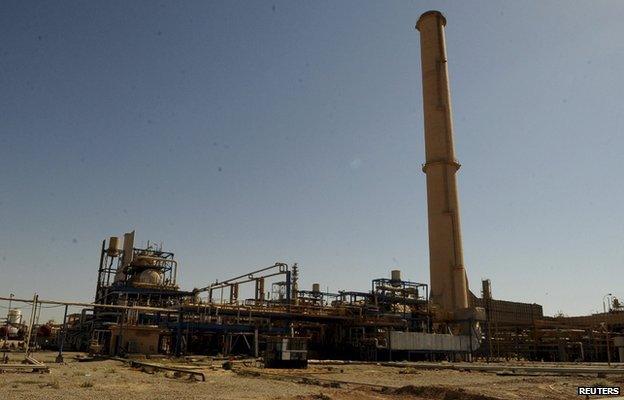
The Baiji oil refinery is Iraq's biggest refinery and had been surrounded, but not taken, by IS militants
Iraqi government forces have seized large areas of the town of Baiji - home to Iraq's biggest oil refinery - from Islamic State fighters, officials say.
They said the troops controlled some 50% of the town, about 200km (130 miles) north of the capital Baghdad.
IS-led militants took Baiji in June, in one of their earliest victories, but did not capture the refinery.
They control large areas of Iraq and Syria. A US-led coalition has been targeting them with air strikes.
A US defence official said on Saturday that coalition strikes had targeted a gathering of IS leaders near Mosul in northern Iraq, destroying a convoy of vehicles.
He could not confirm whether IS leader Abu Bakr al-Baghdadi was present at the time of the attack late on Friday.
IS supporters have since denied the jihadist commander was there.
Baghdadi made a rare public appearance at a mosque in Mosul in July.
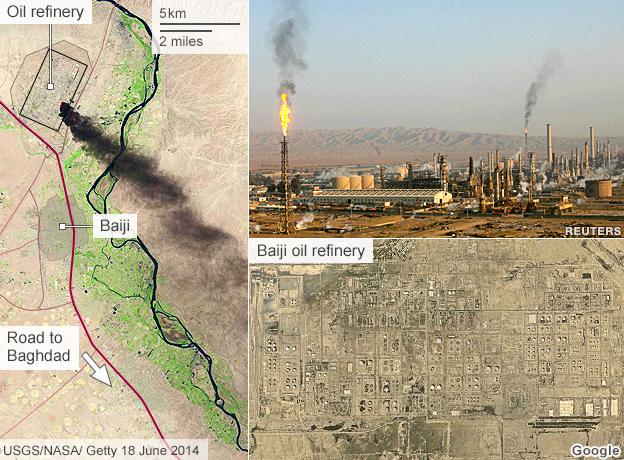
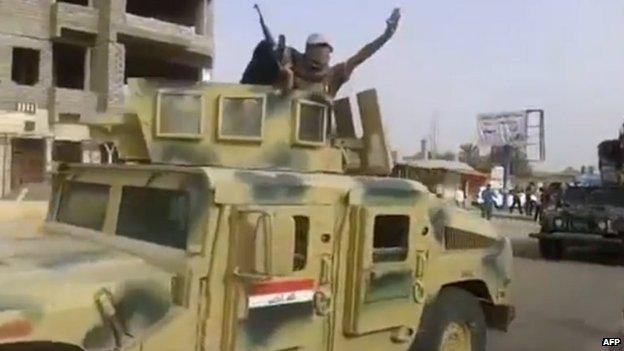
ISIS-led militants overran the town of Baiji in June, seizing abandoned military vehicles
Stranded?
Iraqi security forces have used helicopters to attack the militants in Baiji. An Iraqi military official told Reuters news agency government troops had entered Baiji from the south and west, taking control of al-Tamim neighbourhood and the city centre.
Reuters quoted a resident that clashes had been raging for hours.
Deputy Governor of Salahuddin province Jasim al-Attia told the BBC the IS militants were stranded between the refinery under the control of the Iraqi security forces and army troops arriving in numbers.
They were advancing slowly because of road side bombs and car bomb attacks, Mr Attia said.
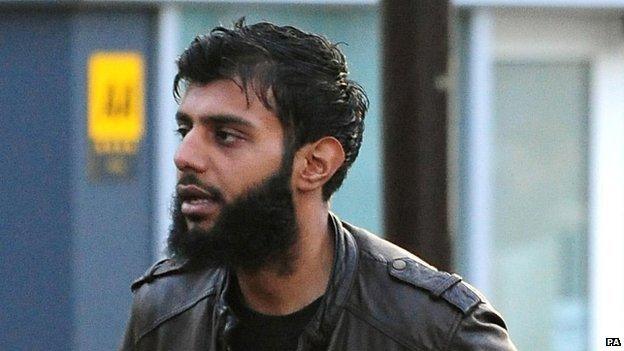
Kabir Ahmed, who has been named in reports as having died in Iraq
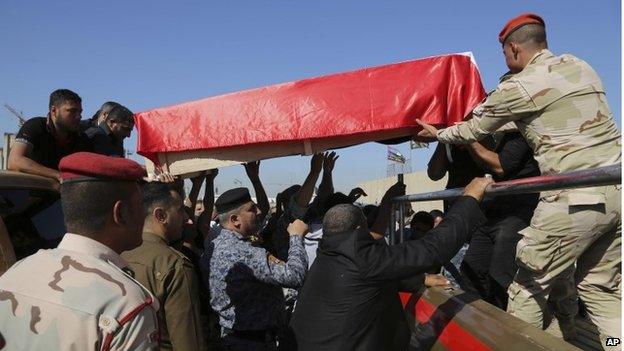
The funeral of a senior police officer was held on Saturday after he was killed in a suicide bombing attack on Friday
British IS militant 'dead'
On Friday, a suicide bomber targeted an Iraqi military convoy in Baiji, killing at least eight people including top police officer Lt Gen Faisal Malik al-Zamel.
According to IS media, a British citizen known as Abu Summayah al-Britani - thought to be Kabir Ahmed reportedly from Derby - was involved in the suicide attack.
The BBC is unable to verify the IS reports. BBC journalists in Baghdad in touch with police and local officials have been told that there was little to be found of the attackers' bodies at the scene.
The British Foreign Office has said it was investigating reports that a UK national has died in the attack.
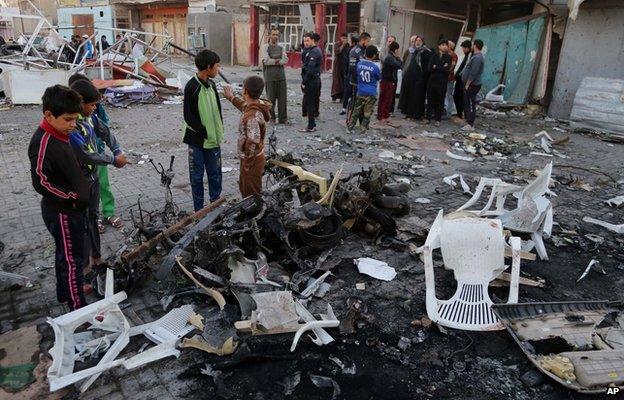
Tens of civilians died in a car bomb explosion in the Shia neighbourhood of Sadr City in the capital Baghdad
On Saturday, at least 33 people died in a series of bombings in the capital, Baghdad, with the deadliest attack killing more than 10 in the Shia neighbourhood of Sadr City.
Car bombings occur on a near-daily basis in Baghdad, and a recent surge of attacks that appear to be targeting Shia Muslims has increased sectarian tension with Sunni communities.